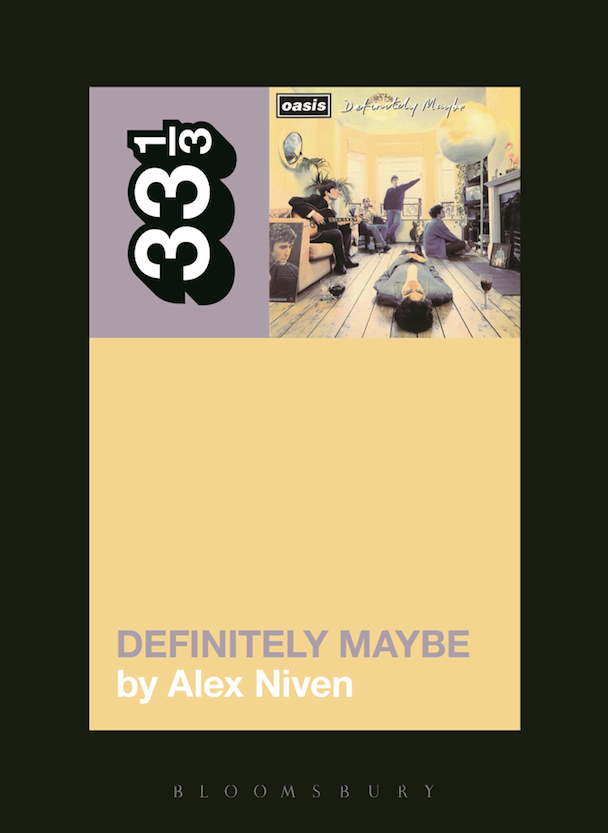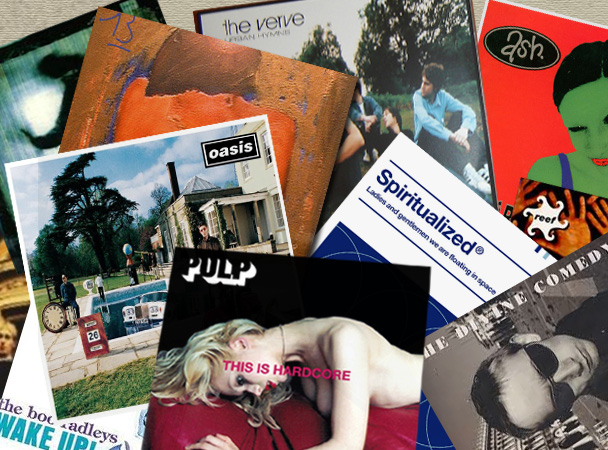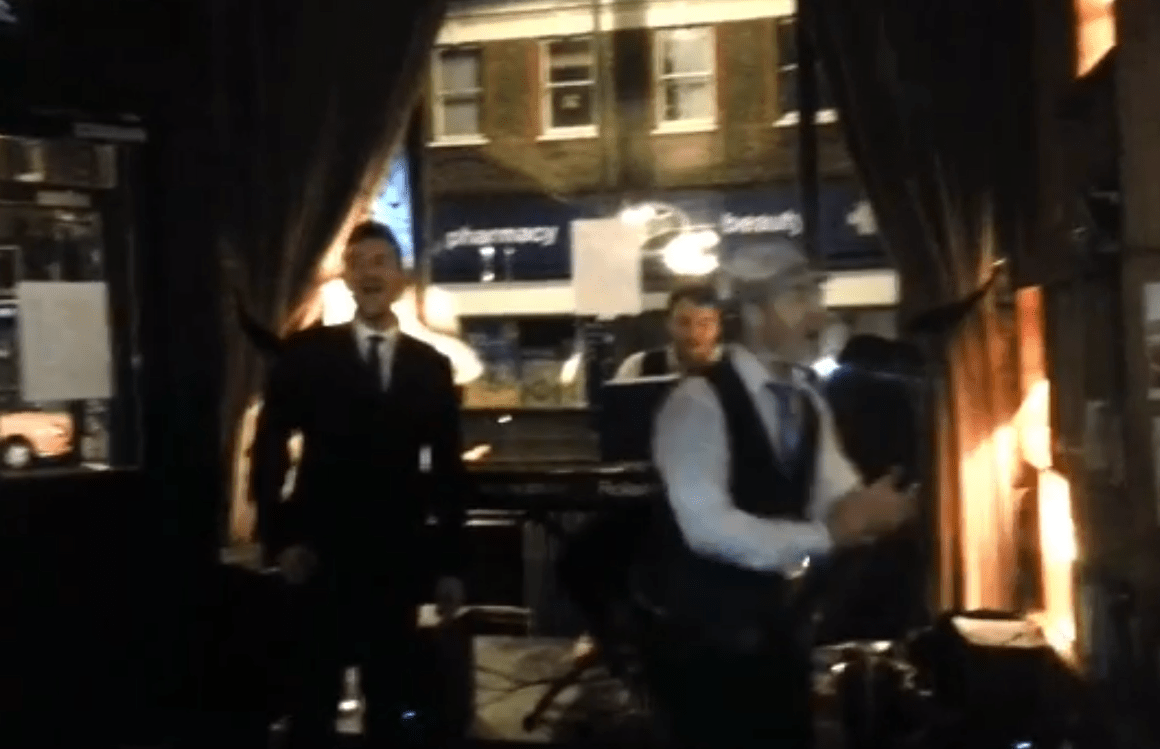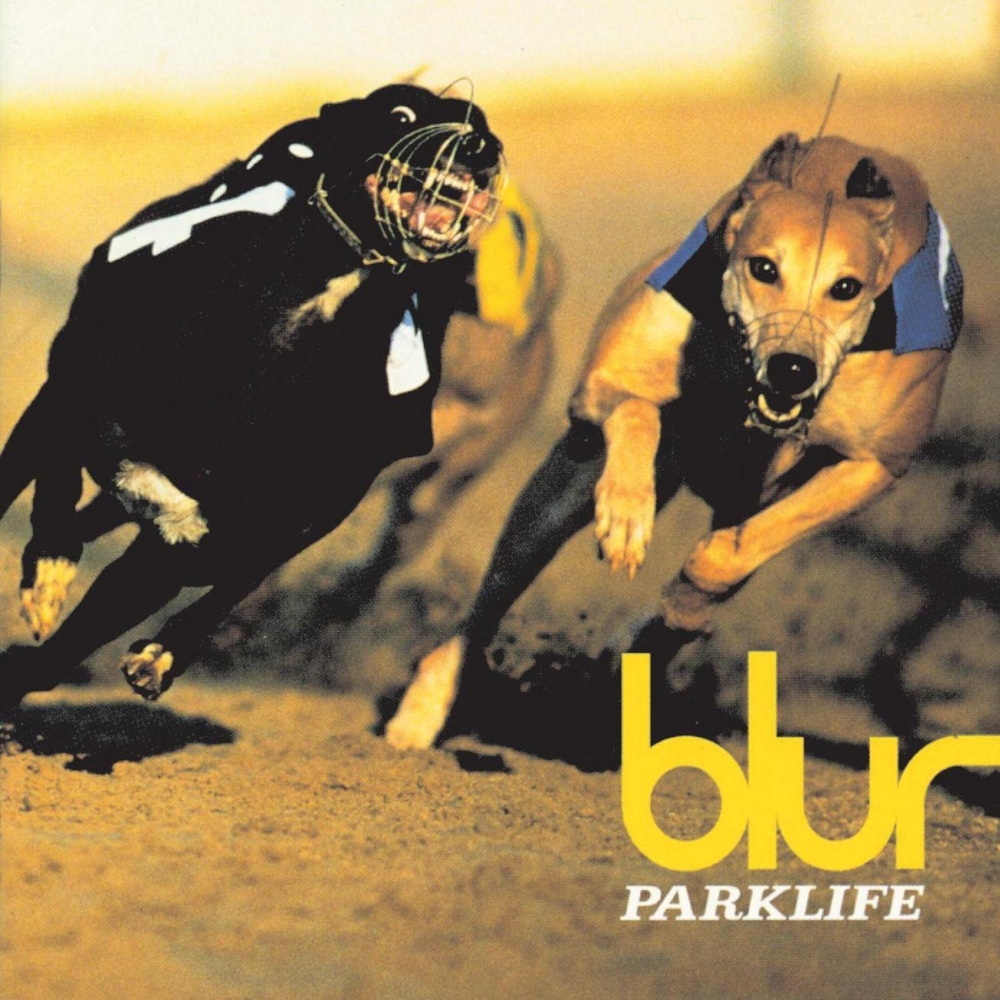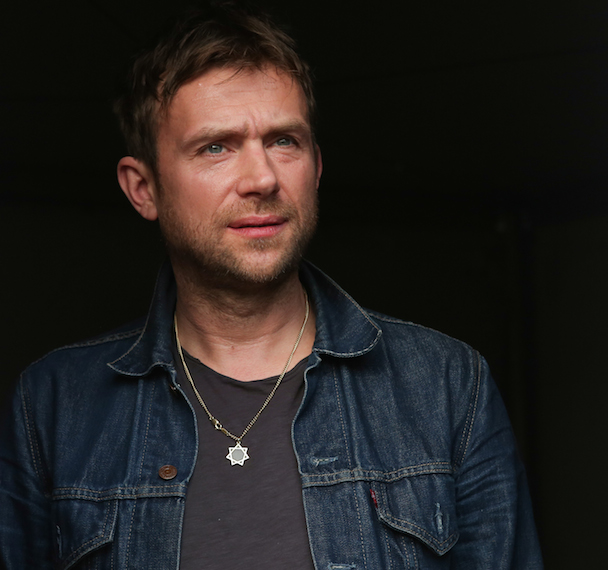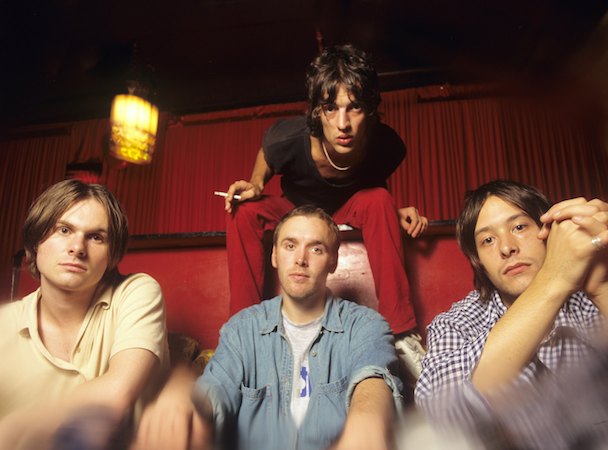It was 20 years ago this week that Britpop first emerged as a major cultural force, thanks to the dual releases of Blur's Parklife and Pulp's His 'N' Hers. So we're celebrating Britpop Week here at Stereogum, looking back in admiration and fondness at the scene in its awesome, messy, beautiful entirety. Among the other major Britpop albums to be released in 1994 was Oasis' timeless debut, Definitely Maybe, which came out on August 29 of that year (and whose forthcoming Limited Edition Deluxe Box Set you can enter to win here). Next month, Bloomsbury is publishing Alex Niven's outstanding extended analysis of the album which explores in granular detail its creation as well as the culture that spawned it -- and then, the culture that followed it. Today, we're publishing an excerpt from the book's first chapter, in which Niven does a remarkable job summing up what made Oasis so special in that moment -- while also hinting at the demise that would follow. It's a fantastic book, and if you care about Oasis, you should read it. Start with this segment now.
Over a two-year period, from the release of their debut single "Supersonic" in the spring of 1994 to their gargantuan Knebworth gigs in the summer of 1996, Oasis became more culturally central than any other band in post-war Britain, with the obvious exception of their role models, the Beatles. During this period, pubs, nightclubs, school discos, playgrounds, shopping centers, weddings, offices, high streets, council estates and -- perhaps most remarkable of all -- football grounds all resounded with the music of a band who, for a brief moment, fostered an unprecedented atmosphere of pop-cultural unity. Oasis were a front-page newspaper story. They made the BBC Six O'Clock News, dominated the airwaves and symbolically sealed the British public's social contract with New Labour when Noel Gallagher was photographed shaking Tony Blair's hand at Downing Street in the summer of 1997. Oasis' populism was of a rare and profound order. Even if most of what they did from 1997 onwards was a travesty of popular art, we ignore the scope and significance of the initial Oasis narrative at our peril.
But how did it all happen, and where did it all go wrong? What stray details about Oasis should we try to recover at all costs?
The answer, of course, must lie mainly with the songs themselves. In fact, pretty much everything we need to know about Oasis is contained on their debut album Definitely Maybe, the songs of which were all composed before the band became famous at all. Writing in Manchester in the years 1991–3, in an environment where socio-economic depression gave rise to a culture of radical hedonism and anti-establishment belligerence, Noel Gallagher composed a series of songs that distilled the spirit of the age far better than, for instance, the more usually celebrated Kurt Cobain, a nihilist capable of writing surpassingly awful lyrics about licking open sores and eating cancer, lyrics that rhymed 'mosquito' with 'libido' just for the hell of it.
In deliberate contrast to such gothic cod-intellectualism, Noel Gallagher's songs on Definitely Maybe offered a message of affirmation and hope that was couched in a language of remarkable clarity. While the long post-punk era that climaxed with grunge in the early 1990s had celebrated negation and made a virtue out of motifs of death and defeat, Oasis lyrics talked about a wholehearted desire to live and hinted at the possibility that some sort of spectacular victory might be won in the teeth of the 1980s nightmare. Significantly, for Gallagher, the difference between Oasis and a grunge band like Nirvana was explicitly a question of class. There were more similarities between Kurt Cobain's self-proclaimed 'white trash' background and the Manchester working-class upbringing than Gallagher realized. But the opposition was nevertheless deeply felt. As Gallagher would later put it, Cobain "had everything, and was miserable about it. And we had fuck-all, and I still thought that getting up in the morning was the greatest fucking thing ever, because you didn't know where you'd end up at night."
This, then, was the first and perhaps the most important message Oasis were trying to communicate. In an era in which deconstructive cynicism was threatening the very existence of a counterculture and the mainstream left, Oasis offered an anomalous vision of radical positivity. And the fact that this was indisputably a working-class vision -- one founded in the solidarity and fraternity of working-class lived experience -- was crucial. As the band's biographer once put it, Oasis were the sound of "a council estate singing its heart out." In a Britain that had just undergone the most damaging period of social upheaval in a century under the Thatcher government, Noel Gallagher ventriloquized slogans of burning communitarian optimism through the mouth of his brother Liam and the playing of the other Oasis "everymen": Paul McGuigan, Paul Arthurs and Tony McCarroll. The sheer elemental energy of Gallagher's idealism on record could be breathtaking. In the chorus of the quintessential Oasis anthem "Acquiesce" (1995), for instance, the lyrics promised that a miraculous collective recovery was just around the corner, that anything was possible if only we believed unequivocally in each other. Where else in pre-millennium culture can you find such an unabashed, affirmative use of the word we? Perhaps only Bill Clinton came close to refuting the eighties myth that there was no such thing as society. (See, for example, Clinton's great epigram of nineties liberal unity: "There is no them; there's only us.")
But Oasis were not, or not only, optimists. If they had been, there really would be little to distinguish their project from the hollow euphoria of mid-nineties politics. The second important detail to recover about Oasis is their remarkable ability to communicate an oceanic melancholy even in their most hubristic moments.
"Supersonic," the first single from Definitely Maybe, is often regarded as an epitome of lumpen nonsense poetry, with its doctor/helicopter, Elsa/Alka-Seltzer doggerel rhymes. But listen more closely. As "Supersonic"'s chorus approaches, the swaggering lyrical graffiti makes way for a much more ambiguous voice, a man who lives in the shadows and struggles to get the right words out of his mouth. There are echoes in these lyrics (and in its mournful melody) of the Smiths' "How Soon is Now?" and this is characteristic of a side of Noel Gallagher's songwriting that is not often talked about. Oasis were among the foremost adaptors of the Manchester–Irish outsider voice last heard in the elegiac eighties compositions of Morrissey and Marr. From the Smiths, Noel Gallagher inherited an obsession with separation, abandonment and dislocation of the individual. In counterpoint with their message of communal hope, Oasis sang plangently and with Morrissey-esque gloom about loneliness and the desire to escape from a humdrum town where prospects were bleak and the old structures of social unity -- job, club, estate, union -- were being decimated by a neoliberal project of class annihilation.
Oasis songs proliferate with calls for breakout and departure, but with an accompanying sense that doing so will result in betrayal and the loss of some precious aspect of a core identity. Repeatedly, there are cries that things are sliding away, slipping away, fading away, that something is being thrown away, that time is running out and sadness is about to engulf us even at moments of euphoria and triumph. "Fade Away," one of the band's famously over-brilliant early B-sides, condenses this theme in a beautiful motto, the gist of which is that our dreams are in a state of decay almost from the moment we are born. Oasis songs are awash with a sense of imminent collapse and disaster. Flood imagery abounds: rain pours down, sinks fill up, the sound of the sea bellows in the background, and individuals are buried under great tides of water and landslides of champagne. Oasis wrote about the overwhelming sadness of late-capitalist experience, of a drowned world in which definition and identity were being washed away by excess and human beings were tumbling headlong into a submarine solitude.
The irony was that Oasis themselves became the disaster.
[videoembed size="full_width" alignment="center"][/videoembed]
The Definitely Maybe 33? is out 5/8 via Bloomsbury. Pre-order it here.
